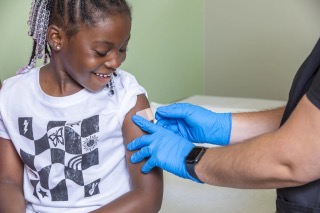“A group of liver infections that the Tulsa Health Department (THD) epidemiologists frequently investigate is viral hepatitis. Viral hepatitis is a common and preventable cause of liver disease that causes inflammation and scarring in the liver over time. This can lead to cancer, cirrhosis, and death in some people. The three types of viral hepatitis that THD investigates are A, B, and C. Hepatitis A is spread via the fecal-oral route. Hepatitis B is a sexually transmitted infection that can also be spread through contact with an infected person’s blood or spread from mother to child during birth. Hepatitis C is only spread through contact with an infected person’s blood and from mother to child during birth. While there are distinctions among the different types of hepatitis, they all affect the liver.”
Hepatitis Statistics
The goal of a public health investigation regarding viral hepatitis is to connect the person to resources for treatment and to provide education to reduce the likelihood that the virus will be spread to others. The most common type of viral hepatitis reported in Tulsa County (and the United States) is hepatitis C. From the 2020-2021 THD Annual Report:
4 Hepatitis A cases
318 Hepatitis B cases
980 Hepatitis C cases
These numbers are small compared to how many people are infected and unaware. About 4 in 10 people with hepatitis C do not know they are infected.
Hepatitis Quick Facts
The good news is that hepatitis C is curable for most people within 8 to 12 weeks of treatment and a vaccine is available for hepatitis A and B. The best way to prevent transmission of hepatitis A or B is with the vaccine. THD offers vaccinations for hepatitis A and B. There is no vaccine for hepatitis C. The best way to prevent hepatitis C infection is to avoid behaviors that spread the disease, especially sharing drug use equipment and syringes.
While the recent increase in hepatitis C cases does coincide with the opioid crisis and injection drug use, an equal number of chronic hepatitis C cases are in the baby boomer population. As of 2020, the CDC recommends testing:
Every adult at least once
During every pregnancy
Everyone with ongoing risk factors regularly
Hepatitis Resources
While THD does not offer treatment or testing for viral hepatitis, the following local groups do:
Tulsa Cares (treatment, testing, case management)
Hope Testing (testing)
Morton Comprehensive Health Services (testing)
Cherokee Nation (testing, treatment for members of any tribe)
You can also be screened by your primary care provider.
Visit https://www.cdc.gov/hepatitis for more information.







